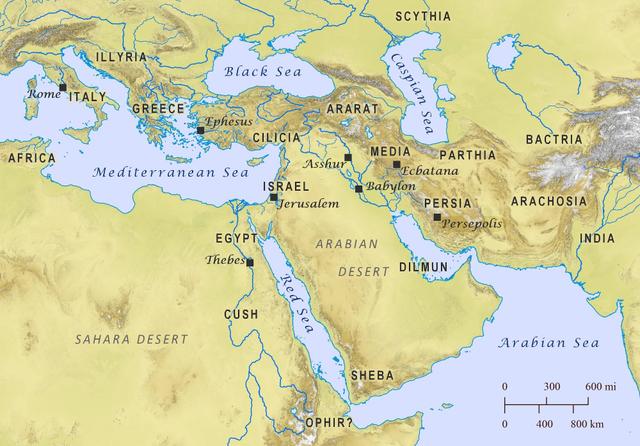Jude, the servant and half-brother of Jesus, greets his readers, who are also believers in Jesus, loved by God the Father, called to live a life of faith. Jude extends a blessing of mercy, peace, and love to his audience.
Jude initiates his letter with a self-identification, highlighting his relationship to Jesus Christ as a bond-servant. The Greek word “doulos” translated as bond-servant indicates that Jude’s self-identity is as a person whose purpose is to serve Jesus as his master.
Jude also identifies as a brother of James. This reflects his familial lineage, aligning him with another prominent figure in the early church. James here is traditionally considered to be James the Just, the half-brother of Jesus.
At the Jerusalem Council of Acts 15, James spoke on behalf of the elders of the Jerusalem church, which was made up of Jews who had believed that Jesus is the Christ (Acts 15:6, 15). James is also inferred to be the head elder of the Jerusalem church when Paul visits Jerusalem toward the end of the book of Acts (Acts 21:17-18). This makes James a highly prominent figure in the believing world, which might add to the authority of Jude’s letter.
James was also called the brother of Jesus sharing a mother, but not a father (Matthew 13:55). That made James a half-brother, given that Jesus was conceived of the Holy Spirit (Luke 1:35). Since Jude is a brother of James, this also means that Jude is a half-brother of Jesus as well. It is likely that he is referenced in Matthew 13:55 as Judas.
That Jude names himself as a brother of James, but not as a brother of Jesus, reinforces his status as a bond-servant to Jesus. This is significant since Jesus’s brothers did not initially believe in Him (John 7:5). This is a substantial proof of the truth of the resurrection of Jesus, that His own family members who did not initially believe came to faith and made themselves bond-servants to Jesus.
Jude’s address then pivots to the recipients—those who are the called, beloved in God the Father, and kept for Jesus Christ (v 1). This asserts that Jude’s letter is written to believers in Jesus Christ. This letter then is intended to disciple and grow these believers, and is not intended primarily as an instrument of evangelism.
The phrase beloved in God the Father, and kept for Jesus Christ aptly describes those who have believed on Jesus. Each person who believes on Jesus is born again into God’s family (John 3:3). The faith required for this new birth is the faith required to look upon Jesus, hoping to be healed of the poisonous venom of sin (John 3:14-15).
The called recipients of this letter are beloved in God the Father. This indicates that the recipients are fellow believers in Jesus. Through believing in Jesus, they have been placed into His body as new creations in Christ, and are therefore beloved by God, being in Christ (2 Corinthians 5:17).
Each person who believes in Jesus is kept for Jesus Christ because they are in Christ, having been baptized into His death (Romans 6:3). As a result, each believer in Jesus is placed into God’s forever family; God will never deny His children, because to do so would be to deny Himself (2 Timothy 2:13).
Jude’s salutation in verse 2, May mercy, peace, and love be multiplied to you, is full of words common to blessings given in church letters. Mercy translates the Greek word “eleos.” Jesus stated that “eleos” (mercy) is one of the “weightier provisions of the law” (Matthew 23:23). It is an attribute of God (Matthew 9:13) that Jude wishes would fall upon the letter’s recipients.
Since Jude is Jewish, the term peace likely refers to the Hebrew idea of “shalom” which refers to all things working in harmony with God’s (good) design. The word love translates the Greek word “agape” which refers to the love of choice. God does not love humans because they are lovable—He loves us because He chooses to (John 3:16).
The phrase be multiplied to you referring to mercy, peace, and love can also be translated “be increased in you” or “be yours in abundance.” The idea is that Jude desires that these divine attributes be displayed in and through the lives of these people he is addressing. In this they will be both blessed as well as a blessing.
Biblical Text
1 Jude, a bond-servant of Jesus Christ, and brother of James, To those who are the called, beloved in God the Father, and kept for Jesus Christ: 2 May mercy and peace and love be multiplied to you.
Check out our other commentaries:
-
Hosea 1:8-9 meaning
Hosea’s wife gives birth to a third child, and the LORD commands Hosea to name him Lo-ammi, meaning that the Israelites are not God’s people....... -
Matthew 13:10-17 meaning
The disciples ask Jesus why He speaks to the people in parables rather than teaching them through literal statements. Jesus gives them a full response...... -
Hebrews 13:17-19 meaning
We ought to submit to those in leadership over us. ...... -
Exodus 17:1-7 meaning
After the provision of food (manna and quail) had been established, the Israelites continued their trek toward Mt. Sinai, also called Horeb, moving to a...... -
Exodus 20:4-6 meaning
The 2nd commandment bans the manufacture of idols or objects that represent nature to worship. The LORD will judge those who reject Him but reward......



